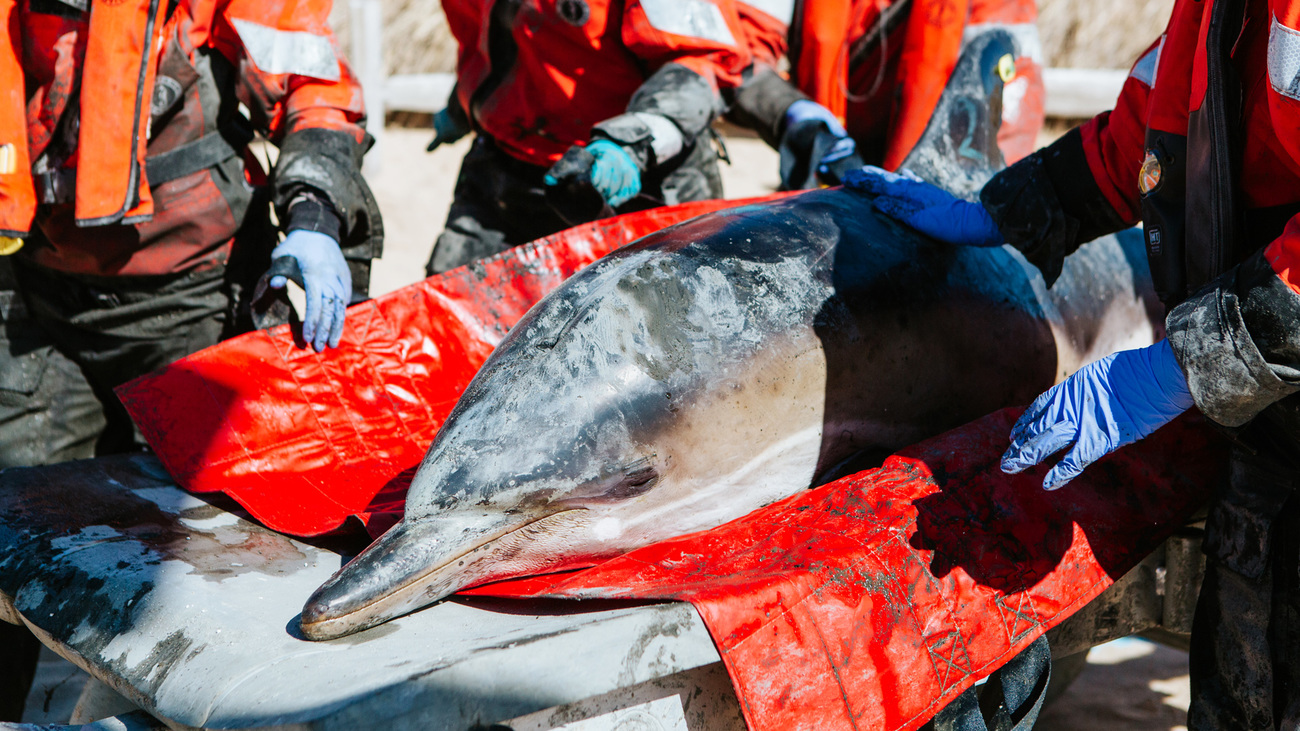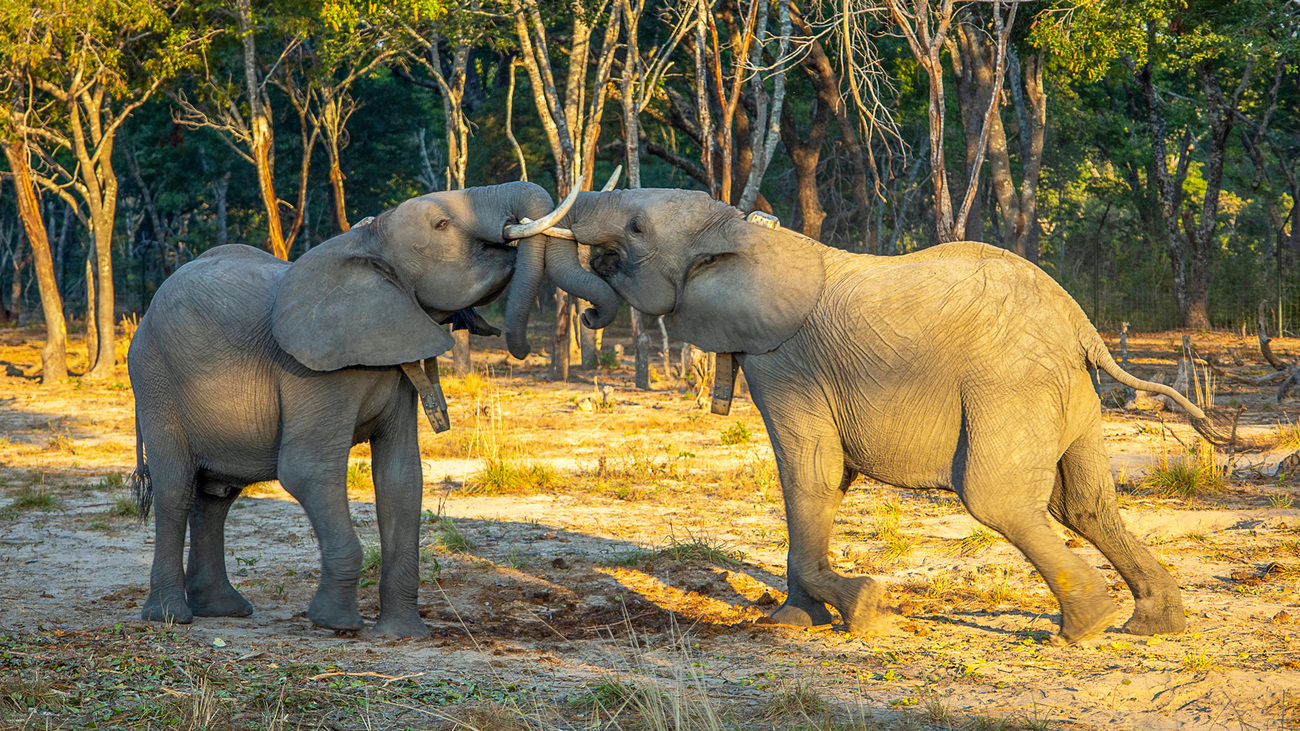Blog
Why we can’t let the North Atlantic right whale go extinct
Read moreTop 10 animal victories of 2023
As we near the end of 2023, let’s look back on 10 of the ways your support has enabled us to save and protect animals this year. Thanks to our supporters, IFAW has helped transport a dozen big cats from conflict-affected areas of Ukraine, opened a new Dolphin Rescue Center, and responded to disasters around the world.
Here are just 10 victories animals experienced this year, made possible by IFAW’s dedicated team and supporters like you:
A lion, a lioness, and her three cubs were surrendered from a breeding facility to Wild Animal Rescue, no longer able to be cared for due to the impacts of the ongoing war. IFAW helped Wild Animal Rescue organise their transportation to Poznań Zoo in Poland, as part of a larger evacuation effort of big cats, including tigers and leopards. The lions made a 20-hour journey, and although the cubs have experienced significant trauma, they are fortunate enough to still be with their mother. The priority of Poznań Zoo is to care for these animals until they can find suitable forever homes.
Did you know the largest land animals are scared of bees? Because elephants avoid bees, building a beehive fence can prevent elephants from roaming into human communities. We built one in Malawi, where the elephant population of Kasungu National Park has increased from 40 individuals in 2014 to nearly 400 following our conservation efforts—a victory in itself—but where human-elephant conflict can threaten the livelihoods of farmers. The construction of the fence has provided employment opportunities to 150 members of the community and creates room for coexistence.
This spring, IFAW worked with Habitat Innovation and Management to restore Two Thumbs Wildlife Trust Sanctuary, which was damaged by the Black Summer bushfires. On the property, the teams installed 100 innovative Habitech nest boxes, which are designed to mimic natural tree hollows. Each nest box can house two different species in two separate chambers, providing homes for birds, bats, sugar gliders, and other small animals. Within two months of installation, 75% of the boxes were occupied. In addition to installing the boxes, the teams also carved 20 tree hollows, planted 2,000 native grasses and trees, dispersed seeds to enhance biodiversity, and performed important soil erosion control and fencing work to help this landscape recover.
Threatened by vessel strikes and entanglement, the North Atlantic right whale is critically endangered—approximately 350 individual whales remain. The IFAW-commissioned research vessel Song of the Whale aimed to monitor the movements and track the behaviours of right whales so we are better equipped to protect them. This year, Song of the Whale was on the water for 150 days, sailing along the US East Coast from St. Augustine, Florida to Georges Bank off Canada. Using underwater microphones and thermal cameras, our team detected the presence of whales, taking photos to identify unique individuals and critical mother-calf pairs. This monitoring informs conservation actions necessary to protect this species from extinction. Multiple advocacy events were held during the journey resulting in over 1,000 visitors onto the vessel and substantial media attention, helping to spread awareness of the plight of the North Atlantic right whale.

We’ve been rescuing dolphins for 25 years on Cape Cod, Massachusetts. This year IFAW opened a first-of-its-kind short-term rehabilitation facility that fills a critical unmet need for stranded dolphins and porpoises. Cape Cod experiences more instances of live mass dolphin strandings than anywhere else in the world. In the last five years, IFAW’s marine mammal rescue team has responded to more than 400 live stranded cetaceans (dolphins, whales, and porpoises), and the new Dolphin Rescue Center will enable us to provide veterinary treatment and rehabilitation to those that need extra care before returning to the ocean.
After a powerful earthquake struck southeastern Turkey and northern Syria, IFAW provided aid to support local organisations, including House of Cats Ernesto Sanctuary in Syria and Haytap Animal Rights Federation in Turkey, in their search and rescue efforts and veterinary care. One animal rescued was Bobby, a paralysed dog who was found covered in mud on the side of the road. With IFAW’s support, the House of Cats Ernesto team was able to build her a wheelchair, which has enabled Bobby to walk, run, and play with other dogs at the sanctuary. We also supported local farmers to rebuild facilities for their animals—not only ensuring the safety of these animals, but also rebuilding their livelihoods.
Deep in the Amazon rainforest, endangered dolphins faced rising water temperatures and historic drought due to climate change. At Lake Téfé, hundreds of dolphins became trapped in the shallow waters. IFAW’s experts headed to the scene to help monitor the situation, prepare rescue options for dolphins in distress, and provide emergency veterinary care training to local teams. Their actions helped build local resiliency and secure the future for two endangered species.

When a mother elephant dies, her young calves are often not able to fend for themselves. Two orphaned elephants in Zambia, Mbila and Zongo, who were rescued in 2020 took the next step toward returning to the wild this year—relocating to the pre-release facility. There they are being prepared for their return to the wild.
Following devastating wildfires, hundreds of animals in Greece needed our help. IFAW sent experts to assess the situation and assist local organisations ANIMA and Save Your Hood in the rehabilitation and release of 201 tortoises. Many of these tortoises suffered from injuries, burns, illnesses, and dehydration. One particularly restless tortoise was named Mr. Akropolis. Alongside volunteers from Save Your Hood, we prepared the tortoises at Attica Zoological Park for release and transported them to Mount Parnitha, the designated release site. Tortoises are known to stick to their original habitat, even if it’s been destroyed, so it’s important that they are released in or as close as possible to their original habitat. The release of Mr. Akropolis and all the other tortoises was a success!
In March 2023, IFAW’s friends at the Lola ya Bonobo sanctuary took in their youngest resident yet—Ikoto, a three-month-old bonobo rescued from the illegal wildlife trade. Bonobos are an endangered species, and they unfortunately are frequent victims of the exotic pet trade. Orphaned and traumatised, Ikoto received around-the-clock care. Months later, Ikoto is growing and recovering, thanks to the dedicated staff at Friends of Bonobos and their sanctuary, which IFAW has supported.
Every problem has a solution, every solution needs support.
The problems we face are urgent, complicated, and resistant to change. Real solutions demand creativity, hard work, and involvement from people like you.
Unfortunately, the browser you use is outdated and does not allow you to display the site correctly. Please install any of the modern browsers, for example:
Google Chrome Firefox Safari